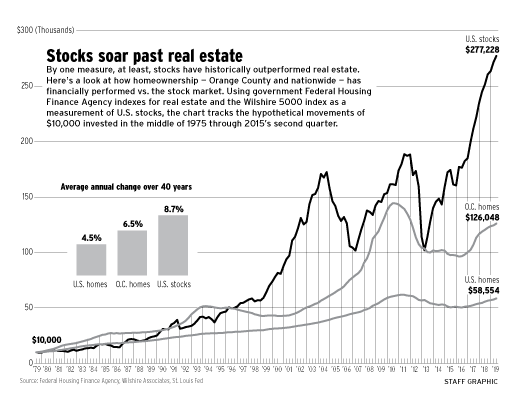An entrepreneur is an individual who owns and operates a business, small or large, with the aim of profiting from the successful running of the business. Entrepreneurs are the legal owners of their business and differ from entrepreneurs in that they strengthen their business by offering products or services that have been proven to drive sales through established business models. The owners usually have complete control over their small business and are only responsible to their customers.
Entrepreneurs do not have to be personally appointed to carry out every day-to-day operation, however, they are the ones who control the assignment of qualified personnel for effective management, money, people, marketing and sales, and products and services. necessary to maintain the current business. As their business expands, owners may need to appoint other executives to manage key parts such as accounting or marketing functions. Of course, you need to have leadership qualities, but you also need to hire strategically so that over time they can take on important leadership positions and manage the day-to-day operations of their business without you. The goal is to build a cross-functional team that can handle most aspects of your business without you, which won’t be the case at first.
Business Owner Versus Entrepreneur
Many entrepreneurs have a very high level of ambition, and a desire to run their own businesses. While the majority of business owners need to earn money for themselves and their family, it is the idea of creating something new that drives them. For these individuals, creating a business is a creative outlet, and they tend to have very high expectations. While Business owners are responsible for managing and growing the company, entrepreneurs are more likely to focus on creating and marketing it.
Entrepreneurs are risk-takers
Almost every business decision involves risk. But the key to long-term success is choosing risk wisely. By taking calculated risks, entrepreneurs can minimize the risk and maximize the positive and profitable outcomes. These risks are foundational to entrepreneurship and the startup industry, and they are one of the most important aspects of being an entrepreneur. Here are some tips on choosing calculated risks to ensure your business’s success. Read on to discover why entrepreneurs are risk-takers, and what they should do before they start.
While many entrepreneurs choose to remain relatively quiet and specialize in one area, some become successful by taking risks. In fact, many businesses fail to achieve their owners’ vision. To become an entrepreneur, you need to be confident in your skills and in your ability to make hard decisions and take calculated risks. You need confidence in yourself and your ability to overcome failure. You can’t expect success overnight. If you have confidence in yourself, the odds of success are higher than if you have no confidence at all.
A calculated risk is a vital part of any business’ success. You must balance the upsides of your venture against the potential losses. Entrepreneurs often make decisions that may seem crazy to an outsider, but most of them are analytical and weigh the potential risks and rewards before making a decision. By taking calculated risks, you are gaining an edge over your competitors. By taking calculated risks, you can increase the probability of success and minimize the risk of failure.
The most important factor for an entrepreneur is their ability to learn from failure. Even if you fail, you will learn from the mistakes you make. Failures will only help you to improve your strategies. And failure will teach you valuable lessons. In addition, entrepreneurs are risk-takers by nature. They take calculated risks to fill a gap in an industry. You can learn from failure, as long as you limit the risks involved.
Business owners focus on managing and growing the company
As the owner of a business, you are a vital part of its success. You need to be available to staff but not buried under daily meetings. It’s easy to become burnt out if you try to be available for everything. Set boundaries and prioritize your time wisely. Do not attend every meeting, even if it is important. Prioritize your tasks and attend meetings only when you have something relevant to discuss.
Entrepreneurs build upon an existing idea
An entrepreneur builds on an existing idea to create a new one. There are many different kinds of entrepreneurship, each with their own unique traits. Many entrepreneurs struggle with having a boss. Although they might be more efficient and effective, they often dislike not having creative freedom. Regardless of their reason, they want to be their own boss and create something they believe in. There are numerous benefits to entrepreneurship. If you’re considering starting your own business, you might be interested in reading more about the topic.
Many people associate creativity with entrepreneurship. But that doesn’t mean that entrepreneurs cannot create original ideas. In fact, creativity is crucial to entrepreneurship. The ability to develop original ideas is essential for bringing innovative ideas to fruition. By practicing creativity, entrepreneurs are better prepared to make decisions. They can better understand their target market and make decisions based on their own insights. Developing an original idea is the first step to entrepreneurship success.
An innovator is part hustler. They do not adhere to other people’s rules and terms. While a researcher is less ambitious, their idea still has plenty of potential. The researcher is likely to collect relevant data and will believe that it will be successful. Moreover, he or she is not afraid of failure, believing that their ideas have the highest chance of success. So while entrepreneurs build upon an existing idea, the risk isn’t as high as it is with innovators.
In an entrepreneur’s early days, the concept of an innovation may not be as clear as a new concept. A great example of innovation is the iPhone. Innovating a product or service can change people’s lives and require substantial investment. In 2003, Tesla, for instance, created a new concept in the automobile industry and introduced an affordable electric car. Today, Tesla has sold over 367,849 electric cars worldwide and has a vast market share in a growing industry.
Entrepreneurs see businesses as a creative outlet
Most entrepreneurs begin their businesses as a way to express their creativity. For some, it is a way to create products and content for others. For others, it is a way to relax after a long day of work. Regardless of the motivation behind the start-up, entrepreneurs use their businesses as a way to remain creative and innovative. While following someone else’s blueprint might lead to small success, the opportunity to innovate and come up with an original idea for a business can lead to huge success.
Creative entrepreneurs sometimes have problems with marketing. While some businesses require a business license, most do not. Getting a business license is relatively inexpensive and not too difficult, but it will provide legal protection if you are ever sued. You will also need a business license if you plan on conducting business in your home. Some local governments may even allow you to operate a business from your home, but check with the zoning department first.
Join The Million Dollar Business Creation (MDBC)™ – Lauching – 50% Discount
Learn How to Start & Scale your Business from 0 to 7 Figures in Less than 18 Months
On the Million Dollar Business Creation, you will learn:
- Secrets of building a multi-million dollar business starting from scratch
- You don’t need to have lots of capital to invest, a prestigious degree or years of experience
- Whether you are just starting out in business or an experienced entrepreneur, this program will give you powerful ideas and strategies that will multiply your business sales and profits exponentially
- Why 90% of Businesses Fail…and how the 10% Succeed
- A Step-by Step Guide on building a business system that works without you How to start a business with very little capital and turn in millions within 18 months
Helpful Links:
Homepage
About
Contact
Personal Development Partner





